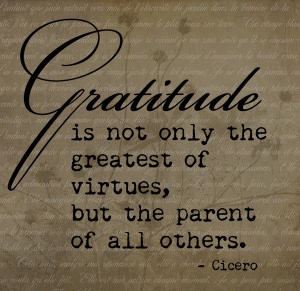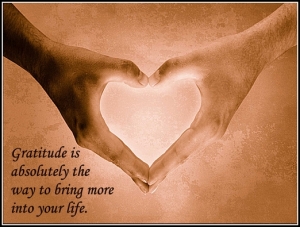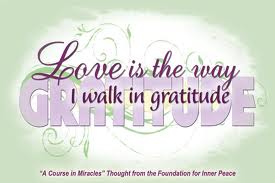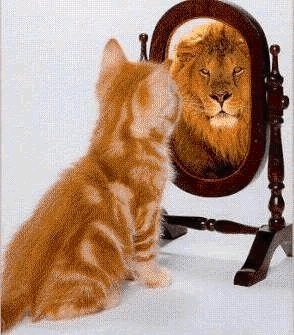Think about the men you dated in [High School or your early 20’s] versus [the men you date in your late twenties]. Aren’t you glad now you didn’t get married back then?! I know I am!
There is something about the number 30 that strikes fear into any woman hoping to get married and have children. Apparently, studies show that when a woman first dreams of Prince Charming, she’s somewhere around seven (a lie from the pit of hell: I was four….or 5 and ¾) and by the time she reaches eighteen (another lie, I was sixteen), her image of perfection is so well tuned, even Michelangelo’s David pales in comparison.
It is during those bell weather years of ‘18’ to 30 where she defines herself, takes her chances, makes mistakes and refines “David”, starting over with clay this time rather than marble. Clay after all can be moulded easily, allowing for alterations as reality redefines fantasy and fantasy fades into oblivion.
A person’s twenties are about definition and getting Mr. Right to notice you while you prove to the world you can take care of yourself. Your twenties are about test driving your emotions, test driving men (and I don’t mean in the literal (physical) sense), and defining oneself. The adjectives used to define Mr. Right at 20 generally include: tall, fun, handsome, great car and awesome in bed. Well, a car has never really been on my requirement list but I hear these are the general requirements at that age. My requirements at that naïve age had an outlandish tone to them. He had to: speak a foreign language, know how to dance, play guitar or a musical instrument, cook, sensitive, and must love “Dances w/ Wolves” or anything w/ Kevin Costner, John Cusack or Denzel Washington etc…and other specifics I won’t bother mentioning, lest I humiliate myself in the process. At 20, a year is a very long time and for most women, the person she is at 20 is drastically different to the woman she becomes in her late twenties. I’ve found this to be true as most items on my requirement list have narrowed down to 3 or 4 fundamental things. No, I will not mention them here. Ok, ok…wait 2 paragraphs for that.
By your late twenties or even thirty, Mr. Right grows up, puts on a few pounds and has better things to do with his time than drink beer, go clubbing/pub-crawling, work out and live just for the moment. Now, as a woman you realize that substance exceeds aesthetics and a guy with six-pack abs usually spends too much time in the gym and too little time involved in the world around him. We don’t want that. Or, do we? Still, it’s great to be with someone who takes good care of themselves but not excessively so. Let’s not underrate physical attraction while we’re still at it.
The new adjectives now reflect my own maturity and include more concrete ideals such as an active walk w/ God, integrity, a passion for living, sense of fun, principled, goal-oriented, considerate, compassionate, communicative, a man worthy of leading a home, and of course, loving. He still must love Kevin Costner, John Cusack and Denzel though. Some things are non-negotiable, you see. By your late twenties, you realise it’s not whether he wants you, it’s whether you want him. In your late twenties, depending on your chosen career, you sometimes forget what year it is because time now goes by so fast. For example, I never quite crossed over into 2009 and 2010.
The Eligible Women Shortage
Of course no amount of maturity stops the panic. If you’re still single you begin to wonder if there is something wrong with you. Why is it so many women who are not attractive, smart or funny seem to have no problem finding Mr. Right? Don’t men like women with brains, looks, a sense of humor and well-honed maternal instincts? If so, where the heck are they?
In truth, your Mr. Right is probably thinking the same thing about you. Where are you? It’s hard to believe, but there is actually a shortage of healthy, mentally-sound, non-addicted, heterosexual late twenty-somthing females looking to get married. Once you reach 35, male or female, only 50% of the dating pool is healthy. Healthy means no addictions, mental diseases or other impediments to a successful relationship I.e. STILL watching that thriller cartoon I so loathe: ‘Spongebob’, the sexually inappropriate ‘Teletubbies’. [deal breakers – LOL!] ‘Batman‘, ‘Penguins of Madagascar’ and Disney movies are allowed and would not serve as detriments though. Jus’ sayin’…
The Wall Street Journal featured an article on the women shortage (in this cohort) a few years back. They reported that many men waited until their late thirties and early forties to marry, wanting first to get their careers off the ground and become financially stable….get all their ’ducks in a row’, you know? The women they date between 2 and 10 years younger(?) These women are part of Generation X, an itty bitty generation by comparison. Basically, single, childless, late twenties to thirty-something women who for the first time in history have three eligible straight bachelors a piece looking to marry. Unfortunately the article neglected to mention where to find them. They’ve gone into hiding. Like Bin Laden. Never to be found again.
Many studies also enquire on the ideal time to get married. It seems for women to be age 32, which is also the year she hits her sexual peak. The philosophy behind this stated that at 32, a woman has finally come into her own, confident in who she is and makes choices based upon fact rather than fantasy.
At 32 she is still open to new ideas, but steadfast enough that she is not easily fooled or manipulated. The segment went on to explain that after 35 it is very difficult for a man or woman to marry because by that point, both are so set in their ways, compromise, an essential element to successful cohabitation (whether within or outside of marriage) is difficult to achieve. No, I don’t believe that this is a rule set in stone. I just find it VEEEERY interesting.
Does that mean at 28, 29 or even 30, a woman is over the hill? And if you’re in this age group, how do you cope and open yourself to love? Personally, I agree with the 30+ scenario but still open to finding love wherever it may lie: whether at 26, 27, 28, 29, 30, heck even 33. Though in my early – mid 20’s while I was panicking, it would have been of little solace. My almost 90-year old grandma doesn’t agree though. But we don’t talk about that. What I’ve discovered is that if I really wanted to be happy, regardless of marriage, I first have to learn from my dating experiences in my twenties by acknowledging the good and the bad. Then I need to redefine Mr. Right based upon reality rather than emotion. Finally I have to accept my situation and for me that means relying on faith I.e. in God, that He would bring the person I‘m meant to be with in my path AT THE RIGHT TIME. And most importantly, use this time in doing all the things that I wouldn’t otherwise do were I attached (travel extensively, finish my education, swimming w/ sharks, bungee jumping etc. and all that ‘living on the edge‘ stuff) and also using this time in becoming Mrs Right (for me, that’s undoubtedly the Proverbs 31 woman), becoming the woman I was intended to be as opposed to constantly being on the prowl for unsuspecting Mr Right(s).
The Dating Lessons of My Twenties
At this juncture, I should clarify that dating in this context does not equal having sex. Dating to me means you spend time with someone, get to know them and share experiences. In a committed relationship that can change. Personally I don’t consider the relationship to be committed until after a few months with mutual agreement and exclusivity. In most cases, dating relationships never get this far. The whole purpose of dating is to get to know someone and see if a future is a possibility. Sex too soon tends to remove objectivity, screwing up the gradual developmental process (establishing and cultivating a friendship) and thereby replacing it [objectivity] with emotion.

I look at the men I’ve dated from 15-26 going back to the first: He was an 8-week relationship, the most popular boy in his high school, tall, star rugby player, had an 8-pack, his father assumed a prestigious position in the legal fraternity, and I was a naïve idiot. Last I heard he was in the process of being indicted for fraudulent activities. The last during this period was a psychotic (no, really) 30 year-old successful IT engineer who was convinced after 2 dates that I was destined to be his Mrs, had unilaterally made the decision to involve his parents, was ready to quit his successful career, move to Finland and the UK w/ me and anything short of that, well, was reason enough for him to end his life (see, I told you he was demented). That is not my portion. I bolted. Yeah, like lightning.
Each dating experience was a notch up as I realized what I did like and most importantly, what I didn’t. Along the way I’ve had several types of relationships: The rebound, the arm candy, the ’Bring home to Mamma’ the ‘older guy’, the complete ‘dysfunctional type’, the ‘younger guy’, my ‘first love’, even the “what the heck are you doing with him?” What was I doing with him? La Joie, NOT.COOL!
Each of these rungs on the ladder taught me something invaluable: 8-pack taught me that gorgeous, “I’m-so-full-of-hot-air’, and stupid is a road to nowhere. ‘Dysfunctional‘? Showed me that a man will always show you who he is when you first meet him but we‘re too stupid to realise. ’Bring home to Mamma’ taught me in 5 years the importance of compromise, loving a man for who he really is as opposed to who you want him to be (WOMEN, oh women, hear me on this one!), how to love and be loved, importance of loving your self first: I.e. coming into the relationship as 2 WHOLE beings as opposed to the famous romantic notion of two halves, commitment, hard work in maintaining a relationship, forgiveness and I could go on. The ‘older guy’ taught me the importance of being w/ someone with whom you’re on the same wavelength, especially when it comes to “religious” values/principles. SO much hinges on that. SO MUCH! ‘First love’? Well…that was not a dating relationship as such but it taught me the utter importance of exercising a little self-control and not saying everything that initially comes into your head, letting go of “traditional” notions in relational set-ups and really listening to everything that is not said. And no, I won’t give a list of all the men I’ve dated.
When I look back on my dating education from my twenties, gratitude engulfs me. Thank you God, thank you God! Thank you God for not allowing me to marry then. Four times I was proposed to and thrice I declined! If I had married then, ‘8-pack’ and I would’ve been “Bonnie & Clyde”. I’d be in jail, no doubt. ‘Psycho’ would’ve driven me into an asylum…right along w/ him. ‘Bring home to Mamma’ and I would NOT be happy pandas, ‘Older guy’ & I would no doubt be living in France, wearing a hijaab, no doubt covering my face, and would live w/ the constant fear of being repudiated or having our 4 kids taken away every time I made the wrong step. ‘First love‘? Well, I’ll never know but that’s all behind me. As for the various “What the hecks”? They’re not worth the detail. And I’m getting bored just thinking about 2 in particular. [YAAAAAAAAAAWWWN!!!]
Still Single in Your late twenties/thirties?
Here’s Hope:
The good news is by their late thirties, men tire of the game and discover what love is about. With maturity they tend to appreciate a woman for who she is rather than solely for how she looks. Most women still single in their late twenties – thirties aren’t desperate. Most have decided their lives are full without a man. This is not a feminist stance, just one of a woman coming into her own. Much as they may desire it, marriage isn’t the goal these women chase. If marriage were the goal, most would have married when asked in their twenties. For these women the goal is a lifetime of love, companionship, shared experiences with an occasional challenge to keep things interesting. A ring doesn’t deliver this. Only love does. A ring is the cherry on top.
Over the past 7 years I’ve watched close to 29 never-married female friends between 21and 35 fight the panic and ultimately come to terms with being single forever and never having children. A miraculous thing happens once each accepts this. Each meets her husband within the following two years, in most cases, within months. He looks nothing like her previous boyfriends or crushes. In many ways he is a composite of all the qualities, character and traits she’s come to respect only the packaging is different. Most will admit she never dated men like that because they “Weren’t her type” visually. He turns out to be the perfect match and totally her type.
How I Changed My Situation and Attitude: 
Why am I glad I didn’t marry in my early twenties? Had I, I would have never been where I am in life today. Though I’m still a work in progress, my personality and certain relationship skills such as patience, forgiveness, unconditional love and compromise, just to name a few, would not have been honed as they are now. As I was then, no serious guy intending to commit would have dated me either: I didn’t love myself or respect myself as I do now. And frankly, I wouldn’t have given any guy worth committing to a second look.
But you couldn’t have convinced me of that in my early twenties. I had to grow up first and learn what was important before my Mr. Right could enter my life. I needed time to develop into the type of woman he is attracted to. The type of woman God intended for me to be to HIM! The key for me is three-fold and I have faithfully followed the advice of my friends. The solution for each of them, and later (hopefully) for me was/is the same: prayer, acceptance and maintaining an open mind.
For nearly 3 years, each night I’ve asked God give me the strength and peace of acceptance if it was His will I remain single. I also asked that if my husband was out there, could He please bring him into my life soon? (and preferably before gravity takes its toll and my chocolate skin loses elasticity…haha! Just kidding). Then over the past 10 months, I’ve made a practice of appreciating what life has given me. Part of this included analyzing my past relationships both the good and bad parts. Finally, I remained open to “any” [there’re some non-negotiable criteria here] man who expresses an interest.
This willingness to date outside of “your type” is crucial. That insurance agent, gym trainer, lawyer, fireman, businessman, construction guy, you sit next to on the plane/bus/train or person you call for research just might be your Mr. Right. That is if you are open to giving him a chance and mature enough to keep an open mind.
Lastly, like I said: it’s SO important during your single days to focus more on making yourself Mrs Right than constantly being on the prowl for Mr Right. Building your relationship w/ God during this time is of utmost importance.
THE END.
*p.s.
All the best girlfriends (and guy friends reading this ;))
P.P.S
Before some of you send me hate mail, we all have different journeys. There are some of you who met said Mr Right while still in High School or in your early – mid twenties. This piece is for those who still haven’t. Now, that that’s out of my hair, anyone for coffee and a brownie?
** Research gathered from Wall Street Journal, December 2001, Good Morning America (2000?), chats w/ few lovelies and article on singlehood by B.D. Devine.
 relationships, is quite simply the evidence of a lack of gratitude. Sometimes there are no real problems in a relationship, such as resentment (part 1) or jealousy (part 2) or unrealistic expectations (part 3) or not making time (part 4) or lack of communication (part 5) — but there is also no expression of the good things about your partner/friend either. This lack of gratitude and appreciation
relationships, is quite simply the evidence of a lack of gratitude. Sometimes there are no real problems in a relationship, such as resentment (part 1) or jealousy (part 2) or unrealistic expectations (part 3) or not making time (part 4) or lack of communication (part 5) — but there is also no expression of the good things about your partner/friend either. This lack of gratitude and appreciation  boss fails to thank his employees for what they do, the employees start to resent both him and their job. On the flip side, nothing can buoy up our relationships quite like gratitude. A warm word of appreciation can instantly thaw the ice between people and even facilitate a long lost reconnection.
boss fails to thank his employees for what they do, the employees start to resent both him and their job. On the flip side, nothing can buoy up our relationships quite like gratitude. A warm word of appreciation can instantly thaw the ice between people and even facilitate a long lost reconnection. the acts of service people perform for us and that we truly understand how those acts make our life better, easier, and happier. Amen. The ungrateful woman is callous; she’s come to think that all the good things that happen to her and all the service rendered to her are an automatic/natural response to her unimpeachable awesomeness. She deserves all that stuff and more. Thus, she never takes notice of the good things that happen to her. And she’s never really happy with what she has. She deserves only the best in life, and concentrates solely on the ways in which this ideal hasn’t been met. How tiring this is.
the acts of service people perform for us and that we truly understand how those acts make our life better, easier, and happier. Amen. The ungrateful woman is callous; she’s come to think that all the good things that happen to her and all the service rendered to her are an automatic/natural response to her unimpeachable awesomeness. She deserves all that stuff and more. Thus, she never takes notice of the good things that happen to her. And she’s never really happy with what she has. She deserves only the best in life, and concentrates solely on the ways in which this ideal hasn’t been met. How tiring this is. happened but didn’t. Their constant whining corrupted their soul and made life very draining for those who loved them most. On the flip side, some of the happiest people I’ve known are the ones that truly embraced the virtue of gratitude. Some of them had nothing to their name, or had a loved one battling w/ illness, but they were still filled w/ so much gratitude for what little they did have. They focused not on the things they lacked, but on all the things they had going for them. The things that made them happy. These people were the best to be around. I just found myself naturally gravitating towards them.
happened but didn’t. Their constant whining corrupted their soul and made life very draining for those who loved them most. On the flip side, some of the happiest people I’ve known are the ones that truly embraced the virtue of gratitude. Some of them had nothing to their name, or had a loved one battling w/ illness, but they were still filled w/ so much gratitude for what little they did have. They focused not on the things they lacked, but on all the things they had going for them. The things that made them happy. These people were the best to be around. I just found myself naturally gravitating towards them. The findings in Personal Interest dovetail with the results of other research examining the psychological impact of gratitude and thoughtfulness. For example, a recent study published in Psychology Science also found that individuals who expressed gratitude were also those more likely to report a strong relationship. Think about that for a few moments…
The findings in Personal Interest dovetail with the results of other research examining the psychological impact of gratitude and thoughtfulness. For example, a recent study published in Psychology Science also found that individuals who expressed gratitude were also those more likely to report a strong relationship. Think about that for a few moments…





















